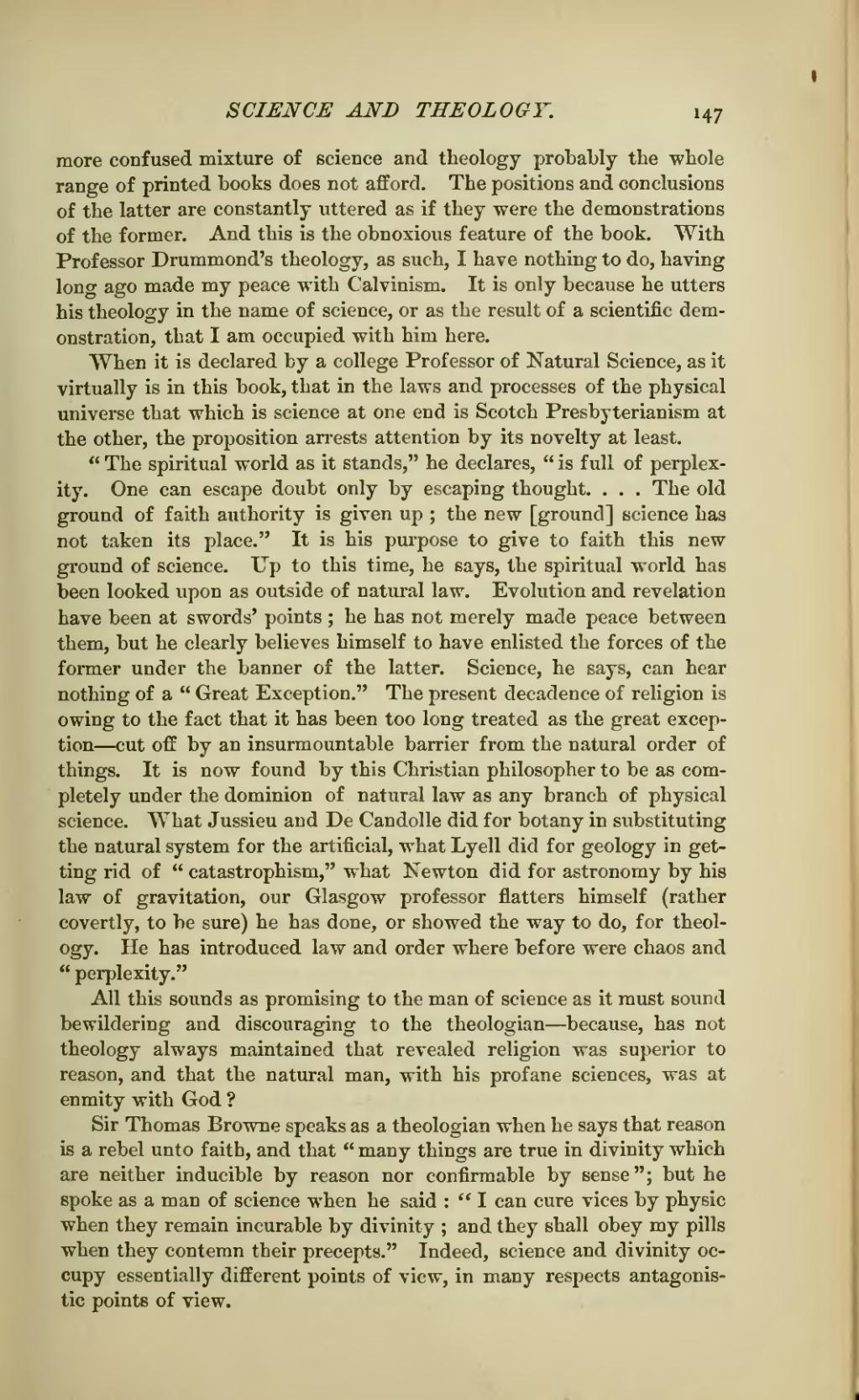more confused mixture of science and theology probably the whole range of printed books does not afford. The positions and conclusions of the latter are constantly uttered as if they were the demonstrations of the former. And this is the obnoxious feature of the book. With Professor Drummond's theology, as such, I have nothing to do, having long ago made my peace with Calvinism. It is only because he utters his theology in the name of science, or as the result of a scientific demonstration, that I am occupied with him here.
When it is declared by a college Professor of Natural Science, as it virtually is in this book, that in the laws and processes of the physical universe that which is science at one end is Scotch Presbyterianism at the other, the proposition arrests attention by its novelty at least.
"The spiritual world as it stands," he declares, "is full of perplexity. One can escape doubt only by escaping thought.... The old ground of faith authority is given up; the new [ground] science has not taken its place." It is his purpose to give to faith this new ground of science. Up to this time, he says, the spiritual world has been looked upon as outside of natural law. Evolution and revelation have been at swords' points; he has not merely made peace between them, but he clearly believes himself to have enlisted the forces of the former under the banner of the latter. Science, he says, can hear nothing of a "Great Exception." The present decadence of religion is owing to the fact that it has been too long treated as the great exception—cut off by an insurmountable barrier from the natural order of things. It is now found by this Christian philosopher to be as completely under the dominion of natural law as any branch of physical science. What Jussieu and De Candolle did for botany in substituting the natural system for the artificial, what Lyell did for geology in getting rid of "catastrophism," what Newton did for astronomy by his law of gravitation, our Glasgow professor flatters himself (rather covertly, to be sure) he has done, or showed the way to do, for theology. He has introduced law and order where before were chaos and "perplexity."
All this sounds as promising to the man of science as it must sound bewildering and discouraging to the theologian—because, has not theology always maintained that revealed religion was superior to reason, and that the natural man, with his profane sciences, was at enmity with God?
Sir Thomas Browne speaks as a theologian when he says that reason is a rebel unto faith, and that "many things are true in divinity which are neither inducible by reason nor confirmable by sense"; but he spoke as a man of science when he said: "I can cure vices by physic when they remain incurable by divinity; and they shall obey my pills when they contemn their precepts." Indeed, science and divinity occupy essentially different points of view, in many respects antagonistic points of view.
